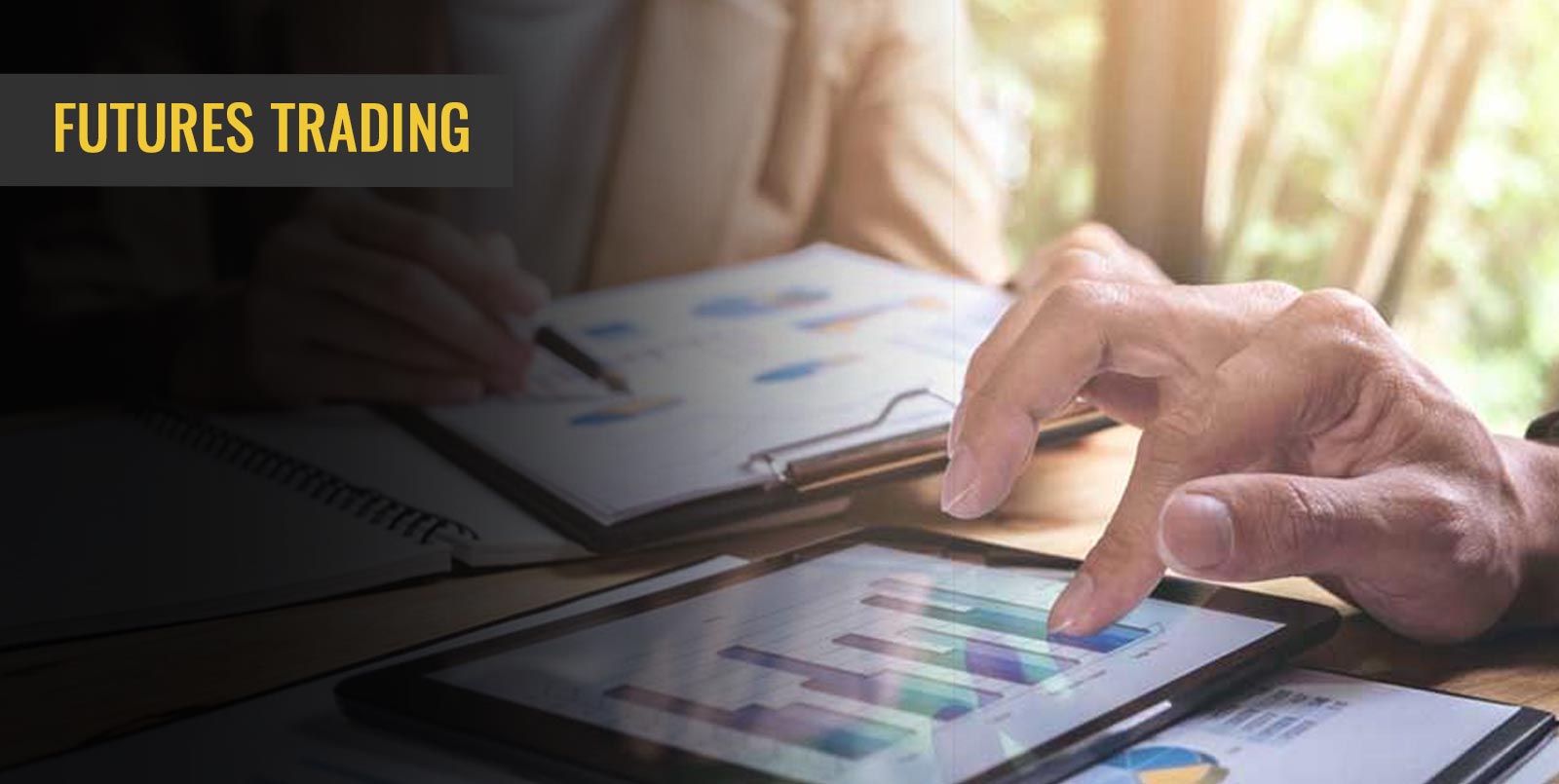Buying a futures contract is essentially the same as purchasing several units of stock from the cash market. The fundamental difference is that in the case of buying future, you don’t take immediate delivery.
Let us look at future trading basics and ways to go about futures trading.
It is important to understand the definition of a future. Futures are nothing but, a financial contract which obligates the buyer to purchase an asset or the seller to sell an asset at a pre-determined future date and a pre-determined price.

How futures trading is different from other financial instruments?
Futures don’t have any inherent value. Its price depends on another derivative.
Futures are standardised contracts that promise physical delivery of the goods on a certain date, which is not the case with other financial instruments.
On the contrary, the stock investment represents your ownership of the company’s future income and profit. Stock investors can hold their investment for as long as they want. Futures expire, but stocks don’t. Hence, the time factor is crucial in futures trading.
How to trade futures
Investors in India can trade in futures on the National Stock Exchange (NSE) and the Bombay Stock Exchange (BSE). Let us see how to trade in futures in India.
- Understand thoroughly how futures and options work: Futures are complex financial instruments and are different from other tools such as stocks and mutual funds. Trading in futures can prove to be a challenge for an individual investing in stocks for the first time. If you want to start trading in futures, you need to know how futures work, as well as the risks and costs associated with it.
- Get a fix on your risk appetite: While all of us want to make profits in the markets, one can also lose money in futures trading. Before you get into how to invest in futures, it is essential to know your risk appetite. You should know how much money you can afford to lose and if losing the amount will affect your lifestyle.
- Determine your approach to trading: It is important to decide one’s strategy to future trading. You may want to buy futures based on your understanding and research. You may also hire an expert to help you with the same.
- Practice with a simulated trading account: Once you have understood how to trade in futures, you can try and practice the same on a simulated trading account, which is available online. This will enable you to have first-hand practical experience on how future markets work. This makes you better at trading in futures without making any actual investments.
- Open a trading account: To start trading in futures, you need to open a trading account. Do a thorough background check before opening a trading account. You also need to inquire about the fees. While investing in futures, it is important for you to select a trading account that suits you best.
- Arrange for the margin money requirement: Future contracts require one to deposit some amount of margin money as a security, which can be between 5-10 percent of the contract size. Once you know how to buy futures, it is essential to arrange for the margin money required. When you purchase futures in the cash segment, you have to pay the entire value of the shares purchased, unless you are a day trader.
- Deposit the margin money: The next step is to pay the margin money to the broker who in turn will deposit it with the exchange. The exchange holds the money for the entire period you hold your contract. If the margin money goes up during that period, you will have to pay extra margin money.
- Place buy/sell orders with the broker: You can then place your order with your broker. Placing an order with a broker is similar to buying a stock. You will have to let the broker know the size of the contract, the number of contracts you want, the strike price, and the expiration date. Brokers will provide you with the option to select from various contracts available, and you can choose from them.
- Settle future contracts: Finally, you need to settle the future contracts. This can be done on expiry or before the date of expiry. A settlement is nothing but the delivery obligations associated with a futures contract. While in some cases such as agricultural products, physical delivery is done, when it comes to an equity index, and interest rate futures, delivery takes place in terms of cash paid. Future contracts can be settled on the expiration date or before the expiration date.
Let us take an example to understand futures trading basics. Suppose you have purchased a lot XYZ stock futures consisting of 200 shares with an expiration date of August 25 for Rs 200. You’ve paid the margin amount and placed an order with the broker. On August 25, let us assume that XYZ stock is trading for Rs 240. You can then exercise the contract by purchasing 200 shares at Rs 200 and making a profit of Rs 40 on each share. Your profit will be Rs 8,000 minus the margin money paid. The money you have earned will then be deposited in your account after deducting commissions and fees. If you have made a loss, then that amount is deducted from your cash account. When you go for settlement before the expiry date, your gains and losses are calculated after they are adjusted against the margins you have paid.
Futures trading can turn out to be profitable, but one needs to take precautions to limit the exposure to risk and maximise returns. Also, trading in futures requires a lot of knowledge and experience, so a beginner should tread with caution.





